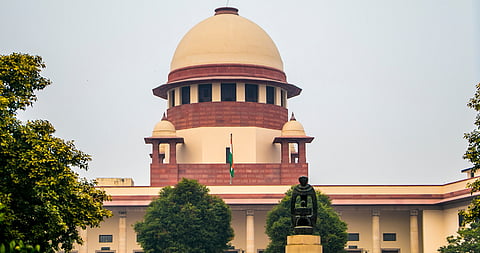

In a decisive hearing today, Friday, May 30, the Supreme Court came down heavily on the National Board of Examinations (NBE) for its decision to conduct NEET-PG 2025 in two shifts.
A bench headed by Justices JB Pardiwala, Manoj Misra, and Ujjal Bhuyan questioned the logic and timing behind the move, highlighting how such decisions risk compromising the fairness of the exam.
The court’s order to conduct the high-stakes exam in a single shift has come as a major relief to students, who have been pushing for this for a long time.
Let us look at some of the key remarks from the bench that stood out:
1. “Don’t give such threats that whole year will go. What is this?” – Justice J Nath
This sharp response came when the NBE’s counsel implied that shifting to a single-session format at this stage could delay the entire exam cycle, affecting admissions and counselling timelines. The bench made it clear that administrative convenience could not override candidate fairness.
2. “Why didn’t you do this before? The process started in March. This cannot be accepted.” – Justice J Nath
When the NBE cited logistical challenges, such as the need for 900 additional centres, as a reason for holding the exam in two shifts, the bench questioned the delay in planning. The justices noted that sufficient time was available earlier to prepare for a single-session exam.
3. “Why have normalisation at all? The candidates will get two different difficulty levels.” – Justice J Nath
Challenging the NBE’s reliance on the normalisation process to address paper difficulty disparities, the court asserted that this approach fails to ensure a level playing field. The bench was critical of making normalisation a routine method rather than an exceptional solution.
4. “Even if there is just one candidate with a redressable grievance, the court has to interfere. It does not matter the number of candidates who have come here.” – Justice Sanjay Kumar
This remark underscored the court’s stance that the scale of dissent is irrelevant if the core issue violates the principle of fairness. The observation came in response to NBE’s argument that only a few students had raised concerns.
5. “We are not ready to accept that in the entire country… the examining body could not find enough centres.”
In response to logistical excuses, the court questioned how, in a technologically advanced nation, it was impossible to find secure centres for a single shift. The bench stressed that citing infrastructure gaps wasn’t sufficient justification.
The court has now directed the NBE to explore options for conducting NEET-PG 2025 in a single shift, citing fairness and transparency as non-negotiable principles. The board has been allowed to apply for an extension if needed, but the directive marks a clear push for reform in how competitive exams are administered.
